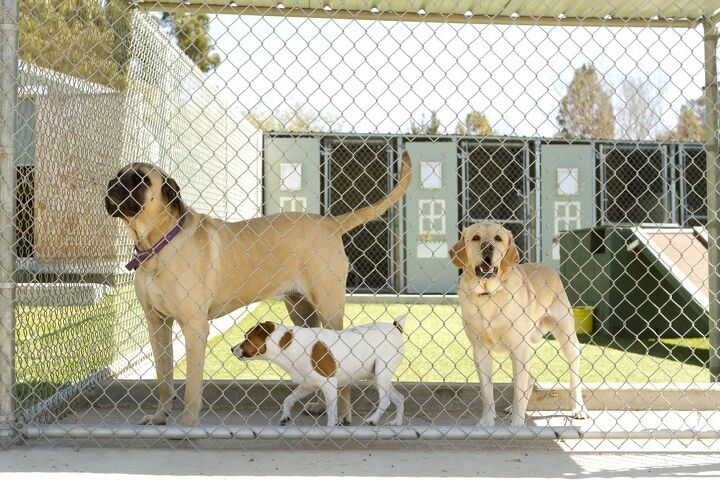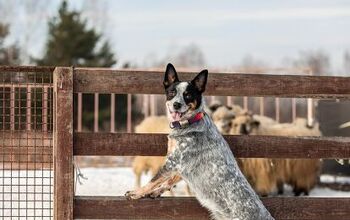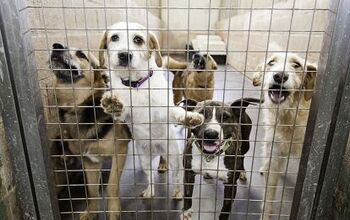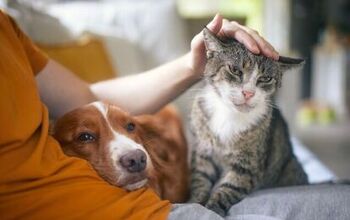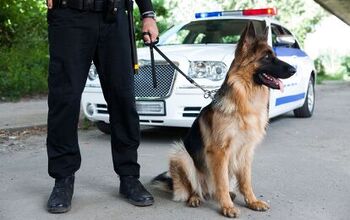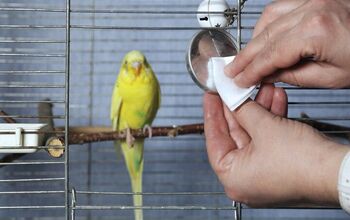Pros And Cons: Dog Boarding Kennels Vs. In-Home Boarding

When it comes to boarding your dog, there are two main options: commercial boarding kennels and in-home boarding. In commercial boarding kennels, dogs are confined to their own kennel and run, and kept alongside, but separately from, a number of other dogs. In-home boarding is where an individual boards just a handful of dogs in their own home, offering them a more relaxed environment. While the latter might sound more appealing, you’ll find pros and cons to everything, so you’ll need to have a think about which option best suits you and your pup.
Safety First
The main issue with in-home boarding is that it has the potential to be less safe. That’s not to say that this is always the case, but you do need to be careful since, theoretically, anyone can offer in-home boarding services. Have a think about the following: Who will be looking after your dog? Do they have any animal care experience or qualifications? Do they have references and a clear background check? What safety measures are put in place to ensure your dog will be safe from injury or theft? Are they insured? Of course, these issues can apply to commercial boarding kennels too, but there may be slightly more checks and balances in place. The bottom line is you should always make sure a boarding facility is as safe as possible.
Day to Day Care
All in all, your dog should get much more individual care and attention if staying at an in-home boarding facility. He will be treated like one of the family and, more likely than not, completely doted on during his stay. This is obviously going to be a much more pleasant environment for him than being kept in a kennel, especially if he’s usually spoiled rotten at home.
Temperament Issues
Usually, an in-home boarding service will take in several dogs at a time, though usually no more than three or four. The problem is that there’s no guarantee they’ll get along. If your pooch is a friendly, happy-go-lucky kind of fellow, then the chances are he’ll be best pals with the other guests in no time. However, if he’s nervous around other dogs or tends toward aggression, then he might be better suited to a commercial boarding kennel, where he can be kept separate from the other dogs for the duration of his stay.
Cost
There’s no such thing as a free lunch, especially when it’s being served to your dog in the comfort of someone else’s home. The fact of the matter is that in-home boarding is generally significantly more expensive than a stay at a commercial boarding kennel. If money’s no issue, then it’s worth the extra dollars for your pooch to have as enjoyable a holiday as you have. However, if you’re on a tighter budget then it might not be feasible.
Illness and Special Needs
Although a good commercial boarding kennel should require its guests to be fully vaccinated, there’s still a chance that your precious pup could pick up something nasty from one of the other dogs staying there. The chance of contracting an illness is much smaller in an in-home boarding environment. In addition, if your dog has a chronic (non-contagious) illness or other special needs, he may receive better and more consistent care if sent for in-home boarding. While staff might be excellent at many commercial boarding kennels, there will usually be multiple members of staff caring for your dog, so things can slip through the net.
Lauren Corona is a freelance writer from merry old England. She specializes in writing about dogs and other critters. Lauren lives near Oxford, with her gorgeous Doberman, Nola. When she’s not tapping away at the keyboard, you’ll find her walking in the woods with Nola-dog, raising money for the Oxfordshire Animal Sanctuary, cooking vegan food, making zines and writing about herself in the third person.

Lauren Corona is a freelance writer from merry old England. She specializes in writing about dogs and other critters. Lauren lives near Oxford, with her gorgeous Doberman, Nola. When she's not tapping away at the keyboard, you'll find her walking in the woods with Nola-dog, raising money for the Oxfordshire Animal Sanctuary, cooking vegan food, making zines and writing about herself in the third person.
More by Lauren Corona



